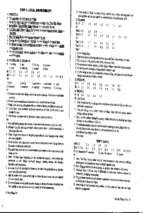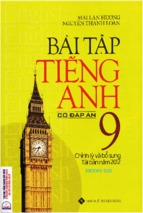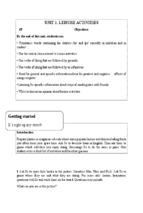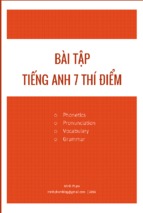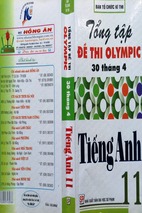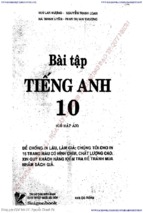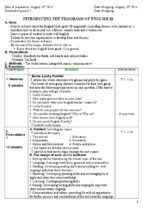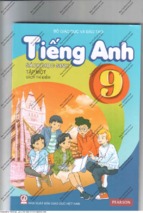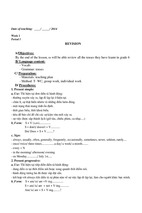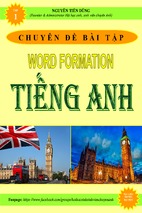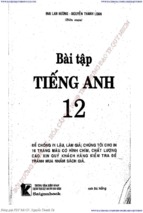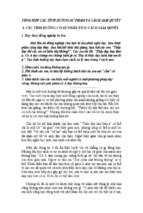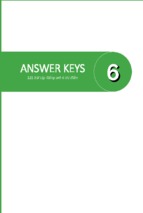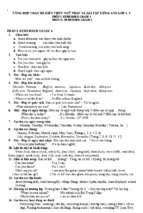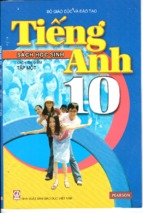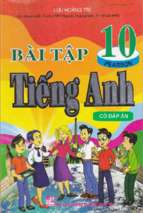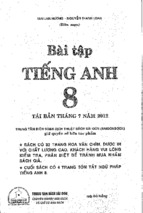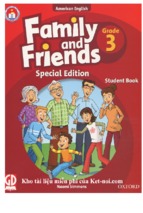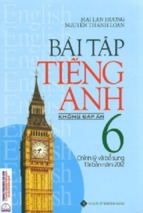Mô tả:
good
Topic
World Food day (16th October)
Aims
•
•
•
•
To develop skills of reading, writing and critical thinking
To teach pupils about the importance of raising awareness about hunger in the world
To encourage empathy in pupils
To promote global awareness of hunger
Age group
Young Learners 11 years old +, teenagers, adults
Level
A2 +
Time
50 - 60 minutes
Materials
World Food Day worksheet (1 per learner)
Introduction
World Food Day is celebrated on October 16th. According to the United Nations, “World Food Day marks a
day to take action against hunger with the sole aim of eradicating it in this lifetime.” Their aim is to reach
zero hunger. More information can be found at the link below.
http://www.un.org/sustainabledevelopment/events/world-food-day/
In this lesson, instead of focusing on the topic of food itself, pupils learn about the problem of hunger in the
world and the need to work together to eradicate it.
They start the lesson by reading a text about World Food Day that contains some statistics about hunger.
They answer a series of questions related to the text, designed to make them think critically about issues
related to hunger. They share their ideas about what they can do to raise awareness in their community.
Finally they collaborate to write letters to world leaders, explaining how they feel and why this issue is
important.
Procedure
Before the
lesson
Download and make copies of the worksheets you need for the lesson.
1. Warmer (5-10
minutes)
Introduce the topic of World Food Day. Write World Food Day: October 16th on the
board. Explain that this lesson is about World Food Day. Have a classroom
discussion. Write these questions on the board and encourage learners to share their
ideas. Accept any reasonable ideas at this stage.
1. How many meals a day do you have?
2. Why is it important to eat a variety of food every day?
3. Does everybody have enough food?
3. (15 minutes)
Give each learner a copy of the World Food Day worksheet. Read the instructions
aloud and give learners a limited time to read the article. Ask the question again and
encourage all of the learners to share their ideas, saying how the article makes them
feel.
Learners then read the article again, making sure they fully understand. Monitor
learners as they read, answering questions if necessary and offering support.
Learners do activity B as a whole class, orally. Read each question in turn and
encourage learners to put their hands up to share their ideas. The questions are
designed to make learners reflect on what it means to live in a place where they might
not have enough food.
The final question is designed to elicit ideas of how the learners can help to raise
awareness. Write these ideas on the board. Possible ideas are: make posters, tell our
friends and families, organise a community picnic, etc. If nobody suggests it, add send
a letter/an email to our leaders.
4. (10-15
minutes)
Learners work in small groups to write a letter to a leader (in the community, in the
country or in the world). Write this skeleton letter on the board:
Dear …
We are pupils at (school)
Today we read an article about (subject)
It made us feel (feelings)
We are writing to ask you (ideas)
(Say thank you)
(End the letter)
From (names)
Put learners into groups to think of ideas for each empty section.
Ask each group to share their ideas in turn and to choose the best ideas to complete
their letters.
Learners complete their letters in groups. They should first write the letter in rough and
then edit it and correct any errors after you have checked it.
Optional extras
Pupils draw pictures of protest to illustrate their letter.
Pupils send their letters.
For higher level teenage learners, there are a variety of resources available on our
LearnEnglish Teens website:
http://learnenglishteens.britishcouncil.org/study-break/video-zone/food-waste-rebel
http://learnenglishteens.britishcouncil.org/study-break/youtubers/cutting-down-waste
Contributed by
Katherine Bilsborough
- Xem thêm -

